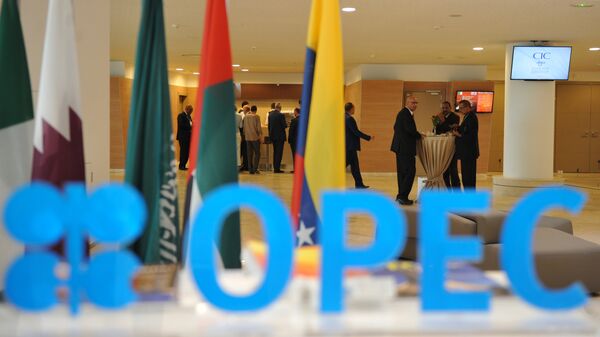Saudi Arabia reportedly intends to increase its oil output in July to 10.6 million barrels a day (bpd), 10.8 million bpd and 11.0 million bpd, which is significantly up from its OPEC goal of 10.058 million. The plan has prompted a barrage of criticism from Iran:
"The State Department says it is short and Saudi Arabia says they will produce 11 million bpd in July. I regret to say they both are ridiculing our organization," Iran’s OPEC governor Hossein Kazempour Ardebili told Reuters.
Prices Drastically Up
OPEC's plan comes against the backdrop of a string of speculations about the future of the oil market.
According to financial, investment and energy specialists, Iran’s halted or limited oil trade with its partners may push oil prices up in light of the exclusion of the major player from the market.
"We are in a very attractive oil price environment and our house view is that oil will hit $90 by the end of the second quarter of next year," Hootan Yazhari, head of frontier markets equity research at Bank of America Merrill Lynch, remarked, as quoted by CNBC. He went on to conclude that disruptions to crude supplies are ubiquitous all around the world, acknowledging that President Trump has gone to great lengths in his bid to isolate Iran and put off its trade partners.
As of Thursday, the major benchmark Brent Crude traded at around $78.18 per barrel.
Earlier this week, the White House threatened slapping penalties on countries that fail to curb oil trade with Iran by November 4. Turkey and India, the biggest importers of Iranian oil, immediately slammed the motion, adding that they won’t abide by the US’ calls.
On May 8, President Donald Trump announced the US’ withdrawal from the 2015 nuclear agreement with Iran and the re-imposition of the sanctions that the deal had previously stipulated to be lifted in exchange for Iran abandoning its nuclear program.
Trump stressed that this time, sanctions on Iran would be imposed “at the highest level,” including a ban on the Islamic Republic’s ability to purchase US dollars as well as limitations on individuals and companies that continue to do business with Iran, especially in the energy sector.



